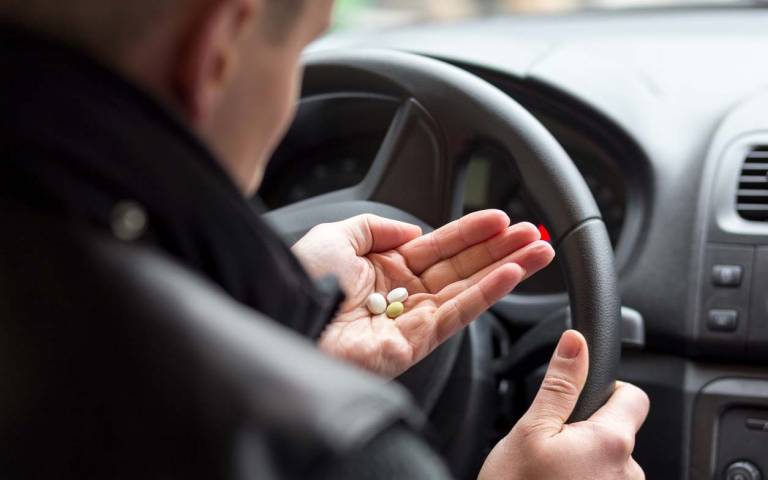Evening dosing of blood pressure medication not better than morning dosing
30 August 2022
Taking blood pressure medication in the evening is no better than taking it in the morning to protect against heart attack, stroke and vascular death, according to a large UK study involving UCL researchers.

Professor Bryan Williams (UCL Institute of Cardiovascular Science), who is also Director of Research at UCLH, is a member of the steering committee for the TIME trial, which involved more than 21,000 patients over five years.
The results of the trial should reassure patients that they can take their medication when it suits them.
More than one billion people have high blood pressure worldwide, and high blood pressure is the leading global cause of premature death.
But there has been a big unresolved question around the timing of blood pressure medication. There had been claims that people should take their medicine at night. Night-time blood pressure is a better predictor of cardiovascular outcomes than daytime blood pressure, and there was a suggestion that evening dosing of medication reduced night-time blood pressure to a greater extent.
However, the TIME trial – the largest study to date on the issue – found that there was no meaningful difference in rates of hospitalisation for heart attack, stroke and vascular death between people who took their medication in the morning and those who took it in the evening.
The study was supported by the British and Irish Hypertension Society and the National Institute for Health Research in the UK, and funded by the British Heart Foundation. Results were presented at the European Society of Cardiology (ESC) Congress 2022 in Barcelona at the weekend.
Professor Williams, who is also President-Elect of the International Society of Hypertension, said: “This is a study of huge practical importance. There has been much controversy and uncertainty over a simple question affecting hundreds of millions of people world-wde; notably, is taking blood pressure tablets in the evening better than taking them in the morning, in terms of protecting patients with high blood pressure from heart disease and stroke?
“The TIME study is the definitive randomised controlled trial, and the answer is no. Patients should take their tablets when they are most likely to remember to take them; the timing does not matter.”
Principal investigator Professor Thomas MacDonald of the University of Dundee said: “The trial clearly found that heart attack, stroke and vascular death occurred to a similar degree regardless of the time of administration. People with high blood pressure should take their regular antihypertensive medications at a time of day that is convenient for them and minimises any undesirable effects.”
Professor Sir Nilesh Samani, Medical Director at the British Heart Foundation, which funded the study, said: “This is important news for the millions of people in the UK who take medication to lower their blood pressure.
“High blood pressure is a major risk factor for heart attacks and strokes. We know that effective treatment with blood pressure lowering medication is vital to reduce this risk. These results show that the time of the day people take their blood pressure tablets does not matter and they should take them at the time that suits them best".
Trial design
The trial benefitted from a unique design that made use of routinely collected NHS data, and whereby patients did not need to attend clinic to take part.
Adults taking at least one antihypertensive medication and with a valid email address were recruited by advertising in the community and from databases of consented patients in the UK.
Once consented to take part via the study website, with their eligibility confirmed, participants were randomised one-to-one to take their usual antihypertensive medication in the morning or the evening.
The study team compared rates of hospitalisations due to non-fatal heart attack or non-fatal stroke, and vascular death, between the two groups.
One of these events occurred in 362 (3.4%) participants in the evening dosing group (0.69 events per 100 patient years) and 390 (3.7%) in the morning dosing group (0.72 events per 100 patient years).
Professor Williams said: “The trial used a real world design and routinely collected NHS data to deliver the trial very efficiently and at much reduced cost. This is ground-breaking and shows the power and potential of safely using routinely collected NHS data for patient benefit.”
Links
- Professor Bryan Williams’s academic profile
- UCL Institute of Cardiovascular Science
- UCL Population Health
Source
Image
- Credit: iStock
Media contact
Mark Greaves
T: +44 (0)7990 675947
E: m.greaves [at] ucl.ac.uk
 Close
Close

